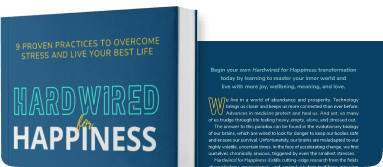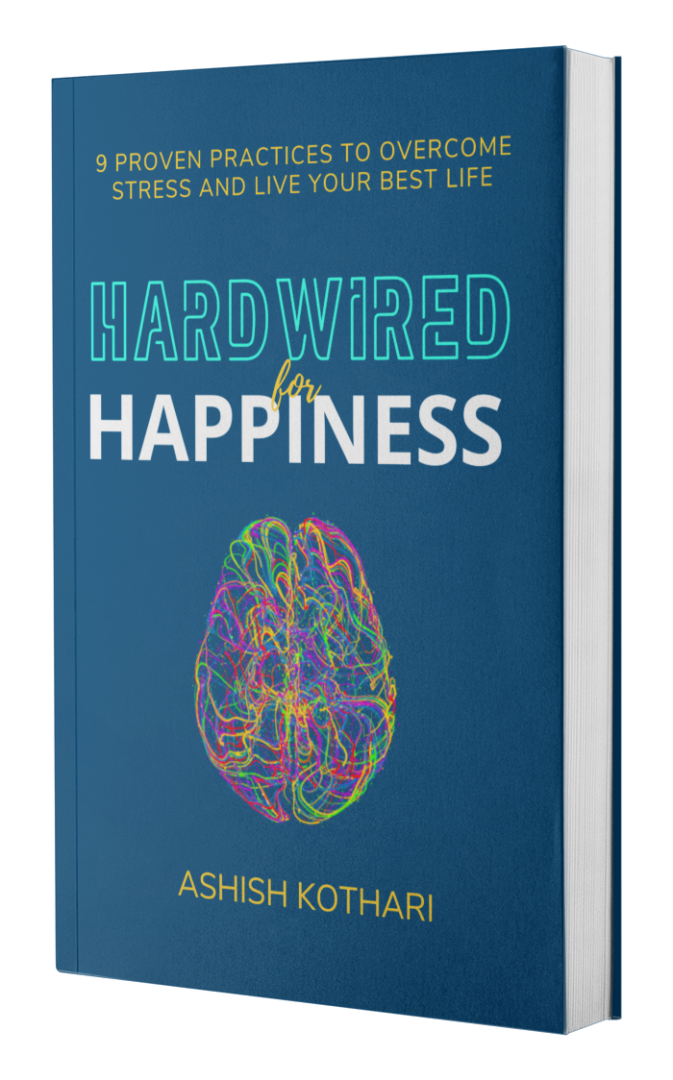The Lies We Love—and How to Lead Beyond Them

There’s a quote I can’t stop thinking about:
“A statement is not a fact. A fact is not data. Data is not evidence. And evidence is not proof.”
— Alex Edmans, May Contain Lies, Professor of Finance, London Business School
Let it land for a moment.
How many times have you heard something that sounded right—and just ran with it?
I have. As a leader. As a consultant. As a parent.
We all have.
Because the truth is: we’re not just swimming in information. We’re drowning in it. And in our effort to keep up, lead well, and do the right thing, we often reach for clarity—even if it’s false.
Alex Edmans’ new book, May Contain Lies, couldn’t have come at a better time. In my recent conversation with him on the Happiness Squad podcast, we explored why smart people fall for bad advice—and how we can lead with greater discernment.
Here’s what I’m still reflecting on.
We Fall for What We Want to Believe
Early in our conversation, Alex shared a powerful story about breastfeeding advice he received from a top-rated antenatal course in the UK. The message was clear: exclusive breastfeeding is linked to higher IQ and better health outcomes.
As new parents, he and his wife were convinced. It was science. It was WHO-endorsed. It was everywhere.
Until it didn’t work.
Their son was still hungry. Their plan—built on data and conviction—wasn’t holding up in real life.
So Alex did what many of us wouldn’t: he went back to the evidence. Not just the headlines, but the original studies. What he found was sobering: when controlling for family background, income, and parental support, those links between breastfeeding and IQ disappeared.
Correlation wasn’t causation.
And yet millions of new parents were being guilt-tripped by a narrative that didn’t hold up under scrutiny.
Why?
Because it felt good to believe it. Because we want natural to be better. Because it’s easier to trust the simplicity of a tweetable truth than to live in the messiness of real nuance.
The Workplace Is No Different
This hit home for me—not just as a parent, but as someone who’s spent years helping organizations build flourishing cultures.

We’re told:
- “Culture eats strategy for breakfast.”
- “Leaders eat last.”
- “Start with why.”
- “10,000 hours is the key to mastery.”
- “Grit is the secret to success.”
These statements get quoted in keynotes, painted on office walls, and baked into performance strategies. They’re powerful. They’re sticky.
But are they true?
Not always. At least, not for everyone. Not in every context.
And when leaders act on half-truths—without questioning the story behind the story—we don’t just waste time. We cause real harm.
I’ve seen this play out firsthand.
A pharmaceutical company I once advised was struggling with overwork and burnout. The solution leadership pursued? A massive “find your purpose” initiative. Not workload redesign. Not role clarity. Just… storytelling.
Purpose is powerful. I teach it. I live it. But when it becomes a distraction from root causes—when we use it to gloss over structural dysfunction—it doesn’t liberate. It gaslights.
The Ladder of Misinference
One of the most valuable frameworks from Alex’s book is what he calls the ladder of misinference:
Statement → Fact → Data → Evidence → Proof
At any point on this ladder, misinformation can sneak in.
Let’s break it down:
- A statement is not a fact.
“Leaders eat last” might inspire you—but Peter Drucker never said “culture eats strategy,” and even if he did, is there proof? - A fact is not data.
Just because one company succeeded with a bold purpose doesn’t mean that’s the common pattern. Cherry-picked stories don’t make a dataset. - Data is not evidence.
Female-led companies may show better performance, but is that because of gender—or because successful companies can afford to diversify? - Evidence is not proof.
Grit predicted success for elite West Point cadets. But that doesn’t mean grit alone will help your child—or your team—thrive.
Why This Matters for Flourishing
We started Happiness Squad with a simple goal: to help people flourish at work and in life. Not through fads, but through evidence-based practice rooted in ancient wisdom and modern science.
But even in this work, I’ve had to unlearn.
I’ve caught myself repeating quotes I hadn’t vetted, referencing studies I hadn’t read, and advocating practices that—while well-meaning—may not serve every team, in every context.
Flourishing isn’t formulaic.
It’s personal. It’s contextual. It’s complex.
And the best thing we can do as leaders is to slow down and think deeper.
How to Lead Smarter in a Noisy World
So how do we navigate this landscape where even good ideas can mislead?

Here’s what I’ve taken from Alex—and what I now bring into every client conversation:
1. Check the source.
Who said it? Are they a researcher? A practitioner? Or just really good at going viral?
2. Watch for bias.
What do you want to be true? What do they want you to believe? Who benefits?
3. Look beyond the success story.
If someone shows you a case study, ask about the failures. Survivorship bias is real.
4. Context is everything.
A great wellness program for a startup may flop in a 100,000-person enterprise. Purpose may motivate one team, and frustrate another.
5. Encourage dissent.
Psychological safety isn’t just about kindness—it’s about truth-seeking. Build a culture where people can challenge ideas without fear.
Final Thought: Believe Less. Question More.
This blog isn’t a takedown of purpose, grit, or inspirational quotes. I believe in purpose. I’ve benefited from grit. I’ve been moved by great storytelling.
But as Alex reminds us: we must hold our beliefs lightly and our thinking rigorously.
In a world of noise, the real advantage isn’t charisma—it’s clarity.
Not certainty—but discernment.Let’s lead with curiosity.
Let’s raise teams that question bravely.
And let’s stop chasing silver bullets—and start cultivating thoughtful minds.
Learn more about Alex on Linkedin.
Listen to the podcast with Ashish and Alex below.
Access and subscribe to all of the episodes of the Flourishing Edge Podcast here.
Visit the REWIRE Program powered up by the HAPPINESS SQUAD Community and experience your shift within your 30-day risk-free trial today. Cultivate your Self-Awareness, Gratitude, Purpose, Community, and personal growth more through the 9 Hardwired for Happiness practices. Integrate simple and proven micro-practices grounded in the science of happiness and neuroscience of habit formation in 5 minutes a day.
Make Flourishing Your Competitive Edge.


